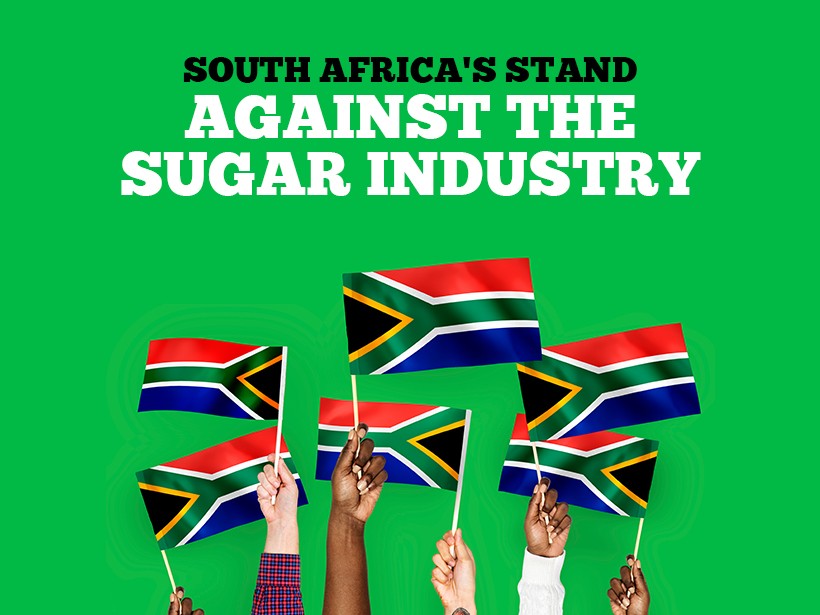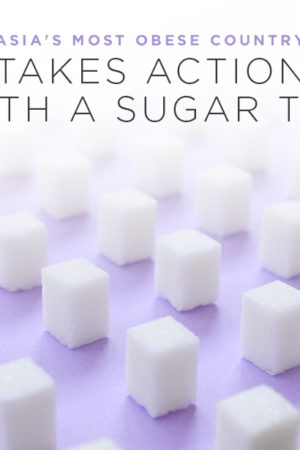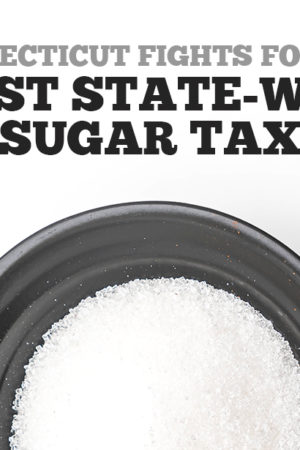There is no shortage of countries in the world with shockingly high levels of overweight and obese citizens. As the numbers begin to reach above 50 percent of the population, governments are forced to take a closer look at the deadly, expensive crisis.
Near the top of the list of overweight populations is that of South Africa, where some 70 percent of women and 40 percent of men are overweight. In an effort to address the problem, the government implemented a tax on sugar last year, known as the Health Promotion Levy. Like many similar sugar taxes passed around the world in recent years, it’s a first step on the long road towards better public health, and its effects have the sugar industry up in arms.
A bitter blow to the shrinking sugar industry
Like similar taxes in England, Ireland, France, Mexico, and many American cities, the sugar tax has made natural enemies of corporate producers. Representatives of the South African sugar industry say that the tax has threatened their stability. “It has resulted in a 30 percent decrease in the amount of sugar that we’ve been selling to the beverage industry,” said Priya Seetal, who holds the rather oxymoronic title of Nutrition Manager at the South African Sugar Association. Since its implementation last year, the tax has cost the industry an estimated 70 million U.S. dollars. 1
Katishi Masemola, general secretary of the Food and Allied Workers Union, said that the government should put a “moratorium on the sugar tax until we engage on obesity issues.”
The problem for sugar, however, is that the emerging evidence from other sugar taxes shows that they are indeed a valuable step forward in dealing with obesity. Lowering the average amount of sugar in our daily diets starts with reducing public demand and, necessarily, shrinking the size of a bloated global industry.
Raising Awareness for Healthy Eating
The still-new tax is just a start, however, as the attack against the sugar industry in South Africa is happening on multiple fronts. The Healthy Living Alliance, or Heala, has launched a public awareness campaign known as the #WhatsInMyFoodCampaign. The organization started out in 2016 pushing for the sugar tax and has continued fighting for a better understanding of the amount of sugar and processed food people eat every day.
“One of the narratives around food is that it’s about individual choice, but no one actually looks into what the food industry puts out there,” said Sibongile Nkosi, executive director of Heala. “So we started this campaign to understand what healthy food is and what is not and to let people know that we actually have a right to know what’s in our food.”2
While taxes can go a long way towards challenging the unrestricted influence of the sugar industry, organizations like Heala make quite a bit of difference in opening people’s minds. Faced with unprecedented levels of public obesity, the need for change has never been more pressing.
NUTRITIONAL DISCLAIMER
The content on this website should not be taken as medical advice and you should ALWAYS consult with your doctor before starting any diet or exercise program. We provide nutritional data for our recipes as a courtesy to our readers. We use Total Keto Diet app software to calculate the nutrition and we remove fiber and sugar alcohols, like erythritol, from the total carbohydrate count to get to the net carb count, as they do not affect your blood glucose levels. You should independently calculate nutritional information on your own and not rely on our data. The website or content herein is not intended to cure, prevent, diagnose or treat any disease. This website shall not be liable for adverse reactions or any other outcome resulting from the use of recipes or recommendations on the Website or actions you take as a result. Any action you take is strictly at your own risk.
- California Pushes for Cigarette-Like Warning Labels on Soda - July 1, 2019
- Is a Slowdown in Australia's Sugar Consumption a Sign of More to Come? - June 24, 2019
- Groundbreaking Study Says the Sugar Rush Doesn't Exist - June 12, 2019































